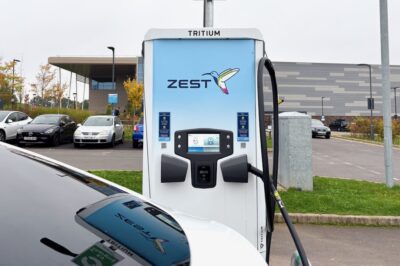Johnson Matthey is building a fuel cell component plant in the UK
Following its withdrawal from the business with battery materials for the automotive industry, the British chemical company Johnson Matthey now announces the construction of a factory for PEM fuel cell components for use in hydrogen vehicles.
The factory at the existing Royston site is expected to offer an annual production capacity of 3 GWh from the first half of 2024 and could be expanded later. Exactly which components are to be produced in Royston is not clear from the announcement.
What is clear, however, is the motivation behind the expansion plans: Johnson Matthey says it is investing in “capacity to support customer growth, supported by customer demand”. A total of 80 million euros is to be invested in the plant; the company itself refers to the production capacity as a ‘gigafactory’.
The expansion is supported by the British government through the Automotive Transformation Fund (ATF). To meet the needs of UK vehicle production until 2035, the government forecast that 14 GWh of FC stacks and 400,000 high-pressure carbon fibre tanks will be needed per year.
“Decarbonising freight transportation is critical to help societies and industries meet their ambitious net zero emission targets – fuel cells will be a crucial part of the energy transition,” says JM CEO Liam Condon. “The fuel cell market has now reached a pivotal moment with the increasing urgency to decarbonise transportation and today marks the next step of the journey to a low-carbon future in the UK.”
After years of investing heavily in battery materials for the automotive industry alongside fuel cell projects, the British chemical company surprisingly announced in November 2021 that it was pulling out of the business. At the end of May, Johnson Matthey announced that it had found buyers for parts of its battery business. The buyers were EV Metals Group and Nano One.





0 Comments